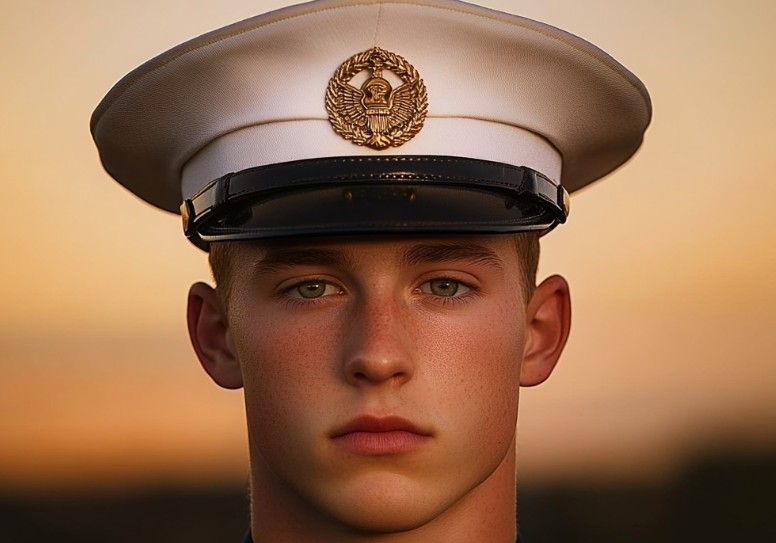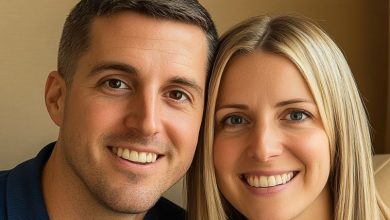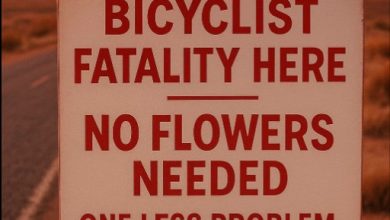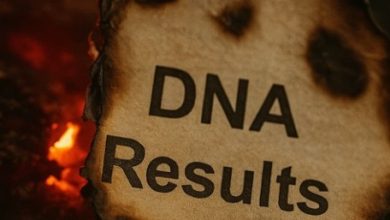Motorcycle Association to Accompany an Ohio Valley Marine Home Who Died When a Drunk Driver Struck His Bike

A Hero’s Last Ride: How One Marine’s Journey Home United an Entire Valley
News travels fast in motorcycle circles, and on a humid June afternoon the message moved even faster than usual: A 29-year-old Marine, Staff Sergeant Christopher D. Harding Jr., needs an escort home to St. Clairsville, Ohio. The Warthogs Motorcycle Club—well known across the Ohio–West Virginia–Pennsylvania region—did not hesitate for a single heartbeat. They promised the young Marine a welcome worthy of his years of service, determination, and sacrifice.
Harding had survived deployments, harsh training, and the everyday risks of military life. But on June 19, his future ended on a rural American road when a drunk driver drifted across the center line and struck his motorcycle head-on. Riders everywhere understood the bitter irony: after avoiding danger overseas, Harding lost his life to a choice someone made behind the wheel at home. Within hours, social-media pages and rider group chats echoed a simple plan: meet at noon at Valley Harley-Davidson inside The Highlands shopping area, travel south to Morgantown, West Virginia, and then guide the hearse north, back across the state line, all the way to Toothman’s Funeral Home in St. Clairsville.
A Call That Needed No Second Reminder
Nobody treated the request as a casual weekend ride. Many Warthogs members are current or former police officers and firefighters; some served in uniform themselves and feel a deep obligation to fallen service members. In the military you never leave a brother or sister behind—alive or dead—and the riders saw Harding as family even if they had never heard his name before that day.
By mid-morning, Valley Harley-Davidson’s parking lot looked like a chrome sea. Rows of Harleys, Indians, Hondas, and Yamahas glimmered in the summer sun, each one freshly polished for the solemn task ahead. Large American flags fluttered from antenna mounts; smaller ones peeked out of saddlebag pockets. Riders tightened straps, checked tire pressure, and hugged friends they had not seen in months. The low, steady throb of idling V-twins mixed with quiet conversation and the soft click of phone cameras capturing the scene.
The Warthogs leadership moved among the crowd, assigning road captains, tail gunners, and “blockers” who would leap ahead at busy corners to keep the group together. They reminded everyone: ride staggered, maintain speed, watch the rider in front of you, and above all stay safe—this mission honored a man killed by another driver’s deadly mistake, so nothing would be more tragic than another crash during his escort.
Mapping the Route—and a Bigger Dream
The published route seemed clear: leave The Highlands right at noon, reach a Tim Hortons parking lot on the edge of Morgantown, merge with the official funeral procession, then cross the Ohio River and continue along Route 9 to St. Clairsville. Yet Harding’s family and the Warthogs hoped for something even larger. They asked every town, every school, every business along Route 9 to turn out and show the fallen Marine that his service counted. Line the road, they wrote on Facebook. Wave a flag. Hold a sign. Let Christopher know he matters.
The effect was immediate. Local hardware stores set out bins of free hand-held flags. The St. Clairsville Fire Department announced it would park ladder trucks at two major intersections and raise a giant flag between extended booms. Restaurants promised employees time off to stand curbside. Scout troops altered summer schedules so their children could practice a correct salute. Parents explained to their kids why people were gathering: Because sometimes you stand up for someone you never met, just to say thank you.
A Tragedy That Hit the Motorcycle World Hard
Riders feel exposed every time they share a road with larger vehicles, and the details of Harding’s death made that vulnerability painfully clear. Police said 56-year-old Bradford G. Jordan from North Chesterfield was driving under the influence when his vehicle crossed the divider and hit the Marine’s bike. Prosecutors charged Jordan with DUI and DUI Maiming; more charges may follow. For bikers, it was a waking nightmare: a safe, skilled rider doing everything right, suddenly erased by someone else’s selfish decision.
Engines Up, Visors Down: The Ride Begins
Just before noon, a hush passed over the crowded parking lot. A Warthogs officer climbed onto a step stool, removed his helmet, and described the mission one final time in a clear, steady voice. Then he signaled. Hundreds of engines rose from rumble to roar. One by one, the bikes rolled to the exit and turned south, a river of steel and leather flowing onto the highway. Cars in nearby lanes slowed or pulled onto shoulders, drivers waving or filming on cell phones. Even people who knew nothing about the escort sensed they were witnessing something important.
The trip to Morgantown lasted less than an hour, but the meaning behind those miles weighed heavy. Every rider understood they were no longer a random group; they were an honor guard delivering a hero home.
Meeting the Hearse in Morgantown
At the designated Tim Hortons, the hearse waited, flanked by Patriot Guard Riders holding large flags that snapped in the afternoon breeze. When the Ohio-based bikes pulled in, riders removed helmets and fell silent. Some touched the hearse gently; others bowed heads in quick prayer. Police officers and state troopers circled the lot, ready to escort the much larger procession forming now.
Instructions traveled down the lines: headlights on, four-way flashers blinking, keep gaps tight. The hearse would stay in the middle of the formation, guarded front and rear by groups of riders wearing bright safety vests.
A Rolling Thunder of Respect
Leaving Morgantown, the procession stretched far beyond sight. Hundreds of motorcycles led and followed the hearse; behind them came pickup trucks and family SUVs with hazard lights flashing. Some drivers who had no personal connection to Harding joined spontaneously after seeing the line pass—drawn by a sense of duty to accompany the Marine, if only for a few miles. Overpasses hosted onlookers waving flags and homemade signs: Welcome Home, Marine and Thank You for Your Service.
As the convoy crossed the Ohio state line, the landscape of support grew even more dramatic. At each small town, church bells rang or fire-station sirens sounded a slow, mournful tone. Children stood on sidewalks shaking red-white-and-blue pinwheels. Elderly veterans saluted from wheelchairs outside assisted-living centers. Some people placed right hands over hearts; others simply stood silent, tears tracking down cheeks.
The Greatest Crowd Route 9 Had Ever Seen
Approaching St. Clairsville, the riders could not believe their eyes. Route 9, normally a quiet two-lane road, had become a living corridor of honor. Thousands packed both shoulders for nearly ten miles. Teenagers held hand-painted posters. Business owners parked company vans sideways so giant flags could hang from the back doors. Farmers drove tractors to the edges of their fields and perched on the hoods in work boots, caps in hand.
At major crossroads, fire-department ladder trucks formed enormous metal arches, and under each arch hung a garrison-size American flag blowing above the road. The St. Clairsville High School marching band, dressed in red polos and khaki shorts, played “America the Beautiful” and then “The Marine’s Hymn” as the hearse passed. A local gospel choir stood beside them, voices rising in rich harmony that floated over revving engines.
Toothman’s Funeral Home: Mission Complete, but the Work Continues
When the last motorcycle rolled to a stop outside Toothman’s Funeral Home, the roar that had filled the afternoon fell away, replaced by soft weeping, quiet prayers, and the gentle clinking of cooling engines. Riders dismounted, some dropping to one knee, some removing gloves to wipe eyes. They had done what they set out to do: Christopher D. Harding Jr. was home, surrounded by respect.
Yet feelings of accomplishment mixed with anger and sadness. The Marine they honored had survived service to his nation only to die because another driver ignored the law and basic human responsibility. Many riders hugged one another and vowed to keep speaking against drunk driving, to volunteer with local awareness groups, to push for stiffer penalties, or simply to offer rides to friends who had been drinking.
A Community Changed
In the days after the escort, ripple effects reached every corner of the Ohio Valley. Social-service agencies reported new volunteers for anti-DUI campaigns. Veterans groups welcomed fresh faces who wanted to support service members and their families. Motorcycle clubs saw an uptick in membership requests, fueled by people who had witnessed the escort and realized how powerful a united riding community can be.
Local reporters wrote follow-up stories noting that drinking-and-driving hotlines received a surge in calls from citizens reporting suspected impaired drivers. Several area bars started “zero-tolerance” programs that offered patrons free non-alcoholic drinks if they agreed to be designated drivers. Harding’s name appeared in those articles, each time reminding readers that a real person—not just a statistic—paid the price for one man’s reckless choice.
Final Honors and Lasting Lessons
Staff Sergeant Christopher D. Harding Jr. was laid to rest a few days later under a clear blue sky. A Marine Corps honor guard folded a flag and presented it to his parents. A lone bugler played “Taps,” the notes echoing across rows of headstones. The Warthogs lined their motorcycles beside the road one final time, forming a silent steel fence until every mourner had left.
In the hush that followed, riders strapped helmets, started engines, and dispersed to their varied homes—some east to Pittsburgh, some north to Steubenville, some west toward Columbus. But each carried the same memory: an endless line of grateful strangers along Route 9, proof that compassion still thrives in a world that can feel divided.
For the Harding family, that sight offered a sliver of peace. Their son’s life had been short, yet the tribute proved it had touched countless others. For the broader community, the escort crystallized two truths:
Service members deserve more than polite words; they deserve active remembrance.
Drunk driving is not a harmless mistake—it is a decision that destroys futures.
Many who stood in the heat that afternoon told reporters later they would never again shrug when friends suggested just one more drink before driving. If Harding’s story spared even one life, then, in a heartbreaking way, his mission continued.
The Echo of Motorcycle Engines
Long after the flags were folded and the last bike disappeared down the highway, residents of St. Clairsville could still recall the deep, rolling thunder of hundreds of motorcycles escorting their Marine home. That sound, they said, spoke louder than speeches or headlines. It said: You are not alone. Your community stands with you. Your sacrifice is seen.
And for the Warthogs who organized the escort, the day reinforced why they ride. Chrome and leather might draw the eye, but purpose fuels the heart. When a brother or sister in service needs one final ride, they will saddle up again—no questions asked—because bringing a hero home is the highest honor any rider can receive.



